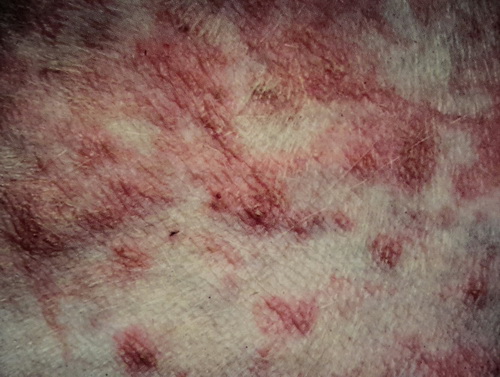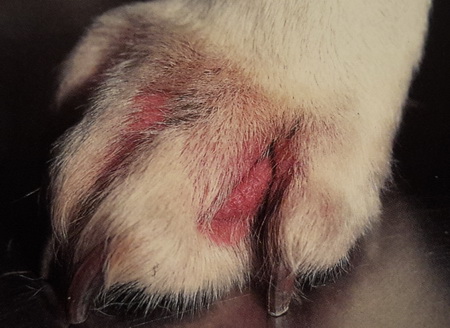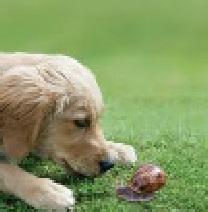|
NEWSLETTER
AUTUMN 2014
CORN COB CRISIS!!!!
An unlikely culprit to cause major surgery? WELL, read on ….
During the last 12 months we have seen two dogs here with a penchant for Corn on the Cob, i.e the whole thing! We felt that dog owners should be made aware that if your animal does manage to steal one and makes a hasty meal of it, the ‘cob’ can potentially lead to a blockage requiring emergency investigation and potentially resulting in fairly major (and expensive!) surgery. Although corn on the cob is not toxic for dogs, unlike most other vegetables it does not digest in the stomach and can therefore cause real problems in the gut.
So, please make sure you keep these vegetables well out of harm’s reach, whether stored in the kitchen or outside on the barbeque/discarded in the garden. Thankfully both of the dogs we saw made a full recovery but will definitely be kept well under control during the next summer ‘al fresco’ dining season!
“MY DOG’S BEEN ON THESE TABLETS FOR AGES, BUT HIS SKIN COMPLAINT STILL ISN’T CURED”
Skin problems are common in our pets. The large market for flea products is a testament to this. They can cause untold misery for both animal and owner and occasionally even lead to euthanasia.
 After fleas, mites and ticks the most common cause of skin diseases are allergies. It is worth remembering that allergies are NOT CURABLE, but they are treatable. Flea allergy dermatitis is very common and differs from a flea infestation in that it can sometimes be difficult to find a flea, especially in cats. It may only take a small number of bites to start your pet scratching and chewing. Careful combing with a flea comb may reveal some flea dirt or a blood test can show positive reactions to flea saliva. Sometimes it is necessary to try treating for fleas to see if the skin improves in order to make a diagnosis. After fleas, mites and ticks the most common cause of skin diseases are allergies. It is worth remembering that allergies are NOT CURABLE, but they are treatable. Flea allergy dermatitis is very common and differs from a flea infestation in that it can sometimes be difficult to find a flea, especially in cats. It may only take a small number of bites to start your pet scratching and chewing. Careful combing with a flea comb may reveal some flea dirt or a blood test can show positive reactions to flea saliva. Sometimes it is necessary to try treating for fleas to see if the skin improves in order to make a diagnosis.
Allergic animals are also very prone to secondary infections involving bacteria and yeasts. These are often bugs found in small numbers on the skin of normal dogs but the inflamed skin of the allergic animal gives them the opportunity to multiply out of control. These secondary infections can also cause itching adding to the animal's problems. They often need many weeks of shampoos and antibiotics to control them.
It is important to treat and control these parasitic and secondary infections before assessing any underlying allergies. Investigating allergies is often a matter of elimination and can take quite a long time and some tests can be expensive. The first stage in investigating skin disease will usually mean taking skin scrapings to look for parasites and samples to look at what type of bacteria and yeasts are on the skin surface. Based on these results, treatments are chosen to control these secondary problems.
The next stage of investigation is to look at possible food allergies or intolerances which may be causing skin disease. To do this you have to feed a protein & carbohydrate that your pet has never had before and exclude all other foods for several weeks. If the skin disease comes back when the original diet is fed and goes again when we feed the exclusion diet we know we are dealing with a food related problem. If we prove the problem is not food related we can consider blood tests or skin tests to find out what allergies your pet may have. Allergies to dust mites are very common in this country. Once we have that information we may be able to avoid or reduce exposure to that allergen or arrange individual treatments to desensitise your pet.
Every pet is different and the problems are often life-long but it is usually possible to keep your pet healthy and comfortable.
These complex diseases need vet and owner to work together to achieve the best results for your pet.
SLUGS AND SNAILS AND LUNGWORM TALES ….
You may have recently seen TV adverts regarding lungworm.
For some reason (only known to some dogs!) great enjoyment is experienced from the taste of all things slimy! If your dog has a taste for molluscs then there is a risk of lungworm, as it is caught from eating these creatures. The most common sign is a cough, although some dogs with a low level of worms may not display any signs at all, however the consequences can be much more severe with some animals developing bleeding problems which can be life threatening.
 Several of the wormers that we use routinely are effective against lungworm, but only if used more frequently or at a different dose, so just because your animal is wormed it doesn’t necessarily mean that they are lungworm-free. If you think your dog may be at risk or you have any questions on this slimy matter then please don’t hesitate to ring the surgery for advice. Several of the wormers that we use routinely are effective against lungworm, but only if used more frequently or at a different dose, so just because your animal is wormed it doesn’t necessarily mean that they are lungworm-free. If you think your dog may be at risk or you have any questions on this slimy matter then please don’t hesitate to ring the surgery for advice.
DOG ID CHIPS AND THE IMMINENT CHANGE IN LAW
FOR A LIMITED PERIOD UNTIL 31ST MARCH 2015, WE ARE OFFERING A FREE MICRO CHIPPING SERVICE, SPONSORED BY THE DOGS TRUST. (The surgery will register your dog’s details directly on the relevant microchipping database).
For further details on when this clinic is available and how to book, please contact the surgery.
PETPLAN VETERINARY AWARDS – 2015
If you think any of our staff deserve a crack at the Petplan ‘Oscars’ (the ceremony takes place in April 2015), then please feel free to nominate, by logging on to petplan.co.uk/vetawards.
UPDATE ON OUR IMMINENT NEW COMPUTER SYSTEM
 We are hoping to be ‘GOING LIVE’ (OOOOOOOHHH) towards the end of October, 2014. We are all receiving training of sorts, but as this new system is so totally different to our dear old beloved Megavet, we are asking our clients to bear with us during the ‘teething period’. Your patience is GREATLY appreciated!! We are hoping to be ‘GOING LIVE’ (OOOOOOOHHH) towards the end of October, 2014. We are all receiving training of sorts, but as this new system is so totally different to our dear old beloved Megavet, we are asking our clients to bear with us during the ‘teething period’. Your patience is GREATLY appreciated!!
|